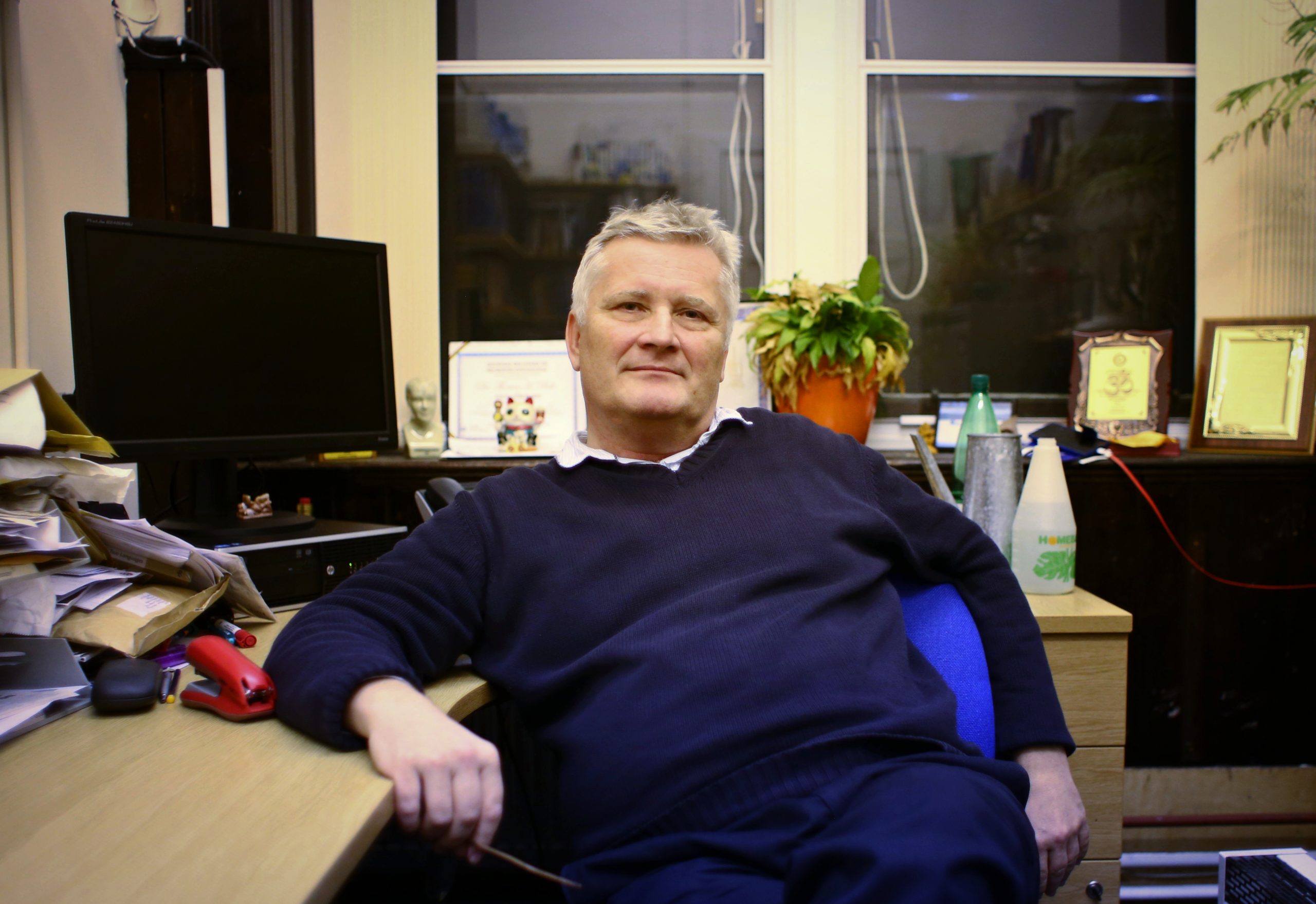Dr Thomas Bak is a reader at the University of Edinburgh School of Philosophy, Psychology and Languages Sciences. He is an expert in cognitive neuroscience, particularly in relation to language and cognition. On 7 December 2017, he discussed the cognitive benefits of learning more than one language.
Having spent the first 20 years of his career studying how brain diseases influence brain function, the cognitive neuroscientist developed his research interest in second language learning “relatively late”.
Dr Bak reached a turning point in 2007, after discovering Bialystok and colleague’s work on bilinguals showing dementia symptoms four years later than monolinguals. “Even today, no drug produces the same effect,” he remarked.
The researcher became inspired to run a more carefully controlled large-scale study with his colleagues in the Indian city of Hyderabad, where bilingualism has been the norm for over 100 years. They found the same effect.
Continuing to examine the impact of language learning on cognitive functions in Scotland, he summarised: “Our findings support the idea that language learning and use can boost the mind’s resistance to brain damage, delay the onset of dementia, and improve cognitive outcome after stroke”.
One interesting gap in this field of research remains the question of linguistic distance; in other words, how different one language is from another.
“Up until now, there is no clear evidence on whether it is cognitively better to learn two linguistically different languages, such as English and Arabic, or two similar ones, for example English and Dutch.”
Dr Bak believes that the more syntactically similar two languages are, the more attention is required to avoid mixing them up.
Bilingualism research has major implications not only in the dementia context but also for school education and immigrant integration.
Despite its benefits, speaking a second language is sometimes perceived as a burden.
“This is often the case with immigrant families in the UK. If these children are struggling to find a place, taking their language away from them will put them down even more when, in fact, it is positive for them,” the expert warned. After all, young non-native children will learn English through their school environment anyway.
This information may be especially relevant in Scotland and Wales where the number of people who are able to speak fluent Gaelic or Welsh is particularly low.
Dr Bak emphasised the naturalness of bi- and multilingualism, given these “have existed for thousands of years, long before writing was invented”. The scholar discussed the prevalence of multilingualism among the tribal people of the Amazon, Papua New Guinea and parts of Africa.
Delving into linguistic exogamy, or the marriage between speakers of different languages, he described this practice as a means of diversifying the gene pool in many Aboriginal societies.
“Language learning is one of the most enjoyable ways of cognitive training and activity, unless one is allergic to it,” Dr Bak lightheartedly concluded.
The academic himself has experience teaching and lecturing in seven languages.
Image credit: Sara Konradi, Edinburgh

